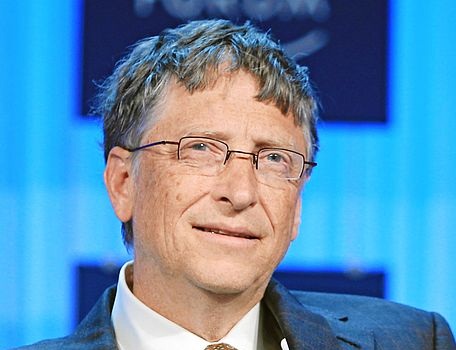Golden Age Of Computing, Says Bill Gates

Microsoft co-founder Bill Gates reckons we are now living in a ‘golden age of computer science’
Microsoft’s co-founder and current chairman, Bill Gates, claims that a computing renaissance is underway thanks to new advances in software and increasingly more powerful hardware.
In a 15 June address at Microsoft Research’s Faculty Summit in Redmond, Washington State, Gates said “I think it’s fair to say that we’re in a golden age of computer science.”
Golden Age
Hinting that innovations like cloud computing are finally putting within reach some his early ambitions for his software company, Gates harkened to “the original vision of Microsoft, that we ought to dream about what software could do if we had infinite computing and infinite storage.”
“That almost is our reality today,” he added.
Microsoft operates its own vast network of cloud data centres in support of its Windows Azure cloud computing platform and other web-based services. Of late, the company has been pouring development resources into expanding Azure’s capabilities, cloud-enabling practically all of its software offerings and maintaining a pace of innovation that’s a generations removed from the days when it sold boxed copies of its PC operating systems, applications and development tools.
 Gates mentioned Office, its flagship application suite, which has grown from software that produces documents to a platform that can deliver “deep insight.” Similarly, search’s evolution can be charted from a technology that once generated a list of links to one that provides answers and finally a tool that facilitates the completion of tasks, he indicated. It’s a theme that’s often referenced in relation to Microsoft’s search engine, with slogans like “Bing is for Doing.”
Gates mentioned Office, its flagship application suite, which has grown from software that produces documents to a platform that can deliver “deep insight.” Similarly, search’s evolution can be charted from a technology that once generated a list of links to one that provides answers and finally a tool that facilitates the completion of tasks, he indicated. It’s a theme that’s often referenced in relation to Microsoft’s search engine, with slogans like “Bing is for Doing.”
Going forward, Gates envisions that progress in user interfaces, modelling, machine learning and other computing disciplines will result in a “powerful assistant [that] can help up get things done, help us derive deep insights.” The next several years, in particular, will be a turning point.
Gates predicted that “the progress we’ll make in the next five years, 10 years will be really unbelievable.”
During the Q&A session, the discussion turned to narrowing the gap between the advanced computing capabilities harnessed by professionals and elite users and the utility IT brings to the average person.
Computing Ecosystem
Computing, at least in developed nations, is ubiquitous, argued Gates. The “computer on every desk in every home” mantra – which was followed internally by “running Microsoft software,” he jested – was dropped 10 to 12 years ago by the company, he said. “After all, now it’s not just one computer. It’s computer in your pocket; it’s the deep sensors; it’s the way these systems are going to work together with profoundly different UI.”
The challenge is to bring the complete power of this ecosystem and its benefits to the masses. The answer may lie in an early, if famously failed effort by Microsoft.
Gates suggested that analytics, automation and a host of other technologies are beginning to converge into a personal agent, which “has been talked about for decades and is really now possible.” Progress in the field will provide a “closer match of what the software can do for [software experts] and what most people end up doing,” he added.
In fact, his company tried once before, namely the reviled Microsoft Bob helper technology. In fact, he anticipates that it “will remerge,” although in a different, more capable form. Gates then joked, “We were just ahead of our time, like most of our mistakes.”
What do you know about Microsoft? Try our quiz!
Originally published on eWeek.